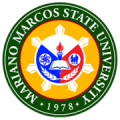<B><U><P align=center><FONT face=Verdana size=4>Finally!</FONT></P></U><P align=center><FONT face=Verdana size=5>CHED grants MMSU permit to operate law program</FONT></P></B>
The Commission on Higher Education (CHED) has finally authorized the university to conduct and operate the first year level of its Bachelor of Laws program.
This was contained in Government Permit (GP) No. 005, series of 2009 dated January and issued last week by the commission. The issuance of the permit is in accordance with the pertinent provisions of Republic Act No. 7722, otherwise known as the \"Higher Education Act of 1994\" and by virtue of CHED Resolution No. 524-A-2008.
With the GP, the university can now officially accept enrollees for Academic Year 2009-2010. According to lawyer Ramon A. Leaño, vice president for administration and business and dean of the MMSU School of Law, interested individuals must submit the following requirements as early as possible as admission is limited: application letter, transcript of records, and two 2\"x2\" identification photographs. Further inquiries may be addressed to his office located at the second level of the FEM Hall (formerly Administration Building).
Backgrounder
The Board of Regents in its 80th Regular Meeting at the CHED Central Office in Pasig City on March 17, 2008, approved the offering of Bachelor of Laws effective first semester of Academic Year 2008-2009.
The idea of establishing a law school at MMSU came about several years back but the plan was not pursued to realization. President Pascua, however, vowed to move for the offering of legal education in the university as she ushered into her second term as sixth president of MMSU. She and other university officials believed that opening a school of law is very timely as it has always been government’s declared policy to establish and maintain an educational system as a means to accelerated national economic growth and meaningful social development. Aside from this, the Integrated Bar of the Philippines Laoag City-Ilocos Norte Chapter had been urging the university to offer a legal education program.
After conducting feasibility studies and personal interviews, a committee from the College of Business, Economics, and Accountancy led by Leaño came out with a \"framework\" based on applicable laws, rules, and regulations; comparative study and analysis of the course offerings of existing reputable law schools in the country; networking and feedback gathering from potential professors; and calculated exposure and feedback gathering from the public via a feasibility study. The preliminary process the committee undertook all produced positive and encouraging results.
The BOR, however, asked the university to write the CHED Office of Programs and Standards as well as the Technical Panel for Legal Education of its intention to offer the program. The problems that beset then CHED Chair Romulo Neri, Leaño said, must have caused the delay in the action of the commission on the university’s request for government permit. Due to this, MMSU – having been ready to conduct the program – tied up with the University of Northern Philippines in Vigan City for the offering of said program this academic year. The commission allows SUCs such as UNP to establish satellite colleges in other state schools.
President Miriam E. Pascua, in an interview, was glad over this new development in the program. She said \"we can now proudly say that the program is ours and we can now officially accept students into the program\".
Gallery
Dear Valued Client,
We will be introducing our newly upgraded website on October 31, 2024 – offering faster access, improved navigation, and enriched content for students, faculty, partners, and stakeholders. Experience how we cultivate minds and transform futures at MMSU.

 CAFSD
CAFSD CASAT
CASAT CAS
CAS CBEA
CBEA CCIS
CCIS COE
COE CHS
CHS CIT
CIT CTE
CTE COM
COM CVM
CVM Graduate School
Graduate School




_7821c879e13f7ee3f9b32ed76fe8793b.jpg)